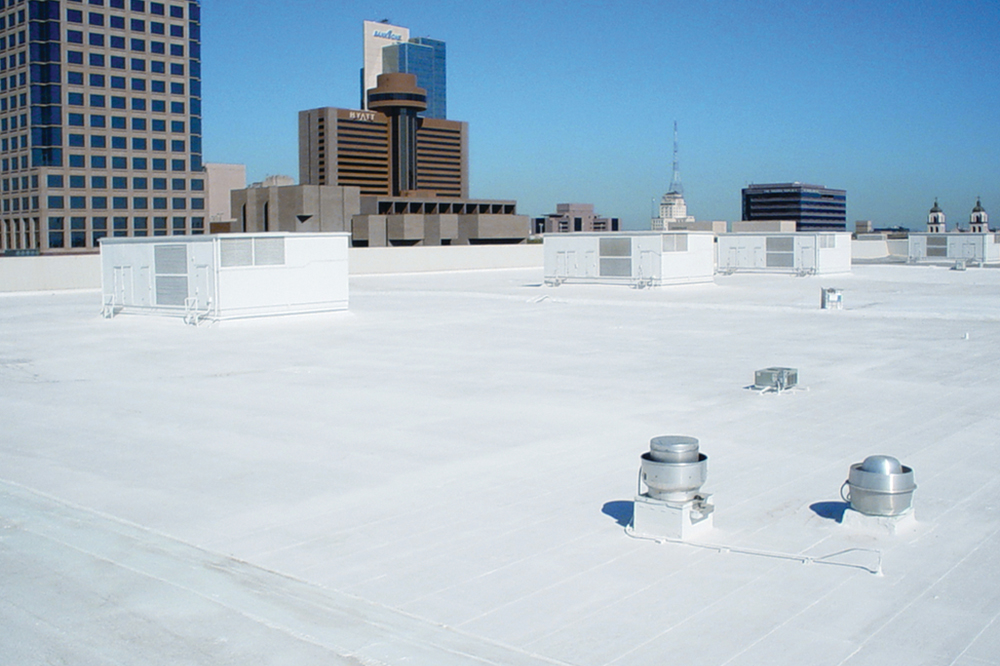
Flat vs. Pitched Roofs: Choosing the Best Option for Your DFW Business

Introduction
When it comes to commercial roofing, business owners often find themselves at a crossroads: should they opt for a flat roof or a pitched roof? Durable EPDM membrane roofing for extreme weather protection This decision can significantly impact not only the aesthetic appeal of your building but also its functionality, maintenance requirements, and overall lifespan. In the DFW area, where we experience a wide range of weather conditions—from torrential rainstorms to blazing heat—selecting the right roofing type is essential for safeguarding your investment. In this article, we will delve into the nuances of flat and pitched roofs, helping you make an informed choice that aligns with your business needs.
Flat vs. Pitched Roofs: Choosing the Best Option for Your DFW Business
Understanding Flat Roofs
Flat roofs are characterized by their near-horizontal surfaces. They may have a slight slope to facilitate water drainage but are generally designed to be as level as possible. Common materials used in flat roofing include TPO (Thermoplastic Polyolefin), EPDM (Ethylene Propylene Diene Monomer), and modified bitumen.
Advantages of Flat Roofs
Disadvantages of Flat Roofs
Understanding Pitched Roofs
Pitched roofs have sloped surfaces that allow water and debris to easily slide off, minimizing the risk of standing water. They come in various styles including gable, hip, and mansard.
Advantages of Pitched Roofs
Disadvantages of Pitched Roofs
Choosing Between Flat and Pitched Roofs: Key Considerations
When deciding between these two types of roofing systems for your DFW business, consider several factors:
1. Local Climate Conditions
The DFW area experiences diverse weather patterns including heavy rainfall during storm seasons which may influence your choice significantly.
2. Building Design
How does your building’s architecture align with either roofing style? Compatibility with existing structures is crucial.
3. Budget Constraints
Assess both initial installation costs and long-term maintenance expenses when weighing your options.
4. Usage Requirements
Will you need additional space on the roof for mechanical equipment or recreational purposes?
Commercial Roofing Options in DFW
For businesses looking for reliable roofing solutions in Dallas-Fort Worth (DFW), local experts like SCR, Inc., General Contractors in Rockwall, TX offer comprehensive services tailored to meet specific needs—from installation through emergency repairs.
1. Emergency Roof Tarp Solutions
In case of unexpected damage from storms or other incidents, having access to emergency roof tarp services can save you time and money while protecting your property from further harm.
2. Commercial Roof Tarping Services
When immediate repair isn’t feasible due to weather conditions or material availability, tarping provides a temporary solution that safeguards against leaks until permanent fixes are made.
Roof Repair Considerations in DFW
Regular maintenance is vital regardless of whether you choose a flat or pitched roofing system:
- Schedule periodic inspections with local storm repair contractors near me who specialize in assessing potential vulnerabilities from harsh weather impacts.
- Look into options like TPO roof repair near me if you’ve opted for thermoplastic membranes; timely repairs can extend the life of your roof considerably.
Frequently Asked Questions (FAQs)
1. What is the best type of roof for my commercial building?
The best type depends on various factors such as climate conditions in DFW, budget constraints, and intended use of rooftop space.
2. How often should I inspect my commercial roof?
It’s advisable to have an inspection at least twice a year along with after significant weather events like storms.
3. Can I install solar panels on both types?
Yes! Both flat and pitched roofs can accommodate solar panels but might require different mounting techniques based on surface angles.
4. How do I find emergency roof repair services near me?
You can search Licensed flat roof contractors for hail damage restoration online using keywords like "24-hour roof repair near me" or consult local directories for recommendations.

5. What materials are best suited for flat roofing?
TPO (Thermoplastic Polyolefin) is popular due to its durability and energy efficiency; however, EPDM also offers excellent performance characteristics.
6. Is it worth investing in regular maintenance?
Absolutely! Regular maintenance helps prevent costly repairs down the line by addressing minor issues before they escalate into major problems.
Conclusion
Making an informed decision about whether to go with a flat or pitched roof involves considering multiple factors unique to your business situation—ranging from financial implications and aesthetic preferences all the way down to climatic demands specific to DFW environments!

As you navigate through this pivotal choice remember that consulting professionals like SCR Inc., General Contractors in Rockwall TX will provide invaluable insights tailored specifically towards meeting both immediate needs alongside long-term goals!
In this evolving landscape where sustainability meets practicality—your next step could very well define not just how protected but also how functional & appealing your business premises appear moving forward!
While this article provides substantial information regarding "Flat vs Pitched Roofs: Choosing the Best Option for Your DFW Business," please note that achieving optimal performance from any roofing system ultimately hinges upon careful planning combined with expert execution—so take action today!